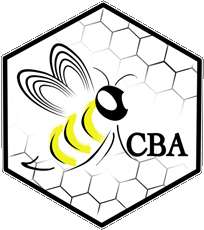

Intermediate FAQ
You have been keeping bees for a while. Now you have more questions...
Why did my bees die last winter?
If a tree fell on the hive, you already know the answer. But often it is not so obvious. Some of the most common reasons include: they starved, due to insufficient stores in the hive, or because the cluster could not reach stores in prolonged cold weather. There may have been moisture problems if the hive did not have an upper as well as a lower entrance. The bees may have been weakened and infected with viruses due to a high mite population in the fall, or shrews might have got in and decimated the bees over winter. The hive might have suffocated under an ice crust.
What's the best way of controlling varroa mites?
There is no single best way. It is best to vary treatments to prevent resistance developing. Monitor for mites in spring and fall, and treat mites early to prevent explosive growth in populations. Read up on all the available methods and choose an approach that suits you.
Do I need to requeen every year? How often?
Not necessarily, although a lot of beekeepers do. If your queen is laying steadily and the colony is healthy, a queen can do well for several seasons. If the queen is failing, the bees will supersede her themselves. Queens have been recorded laying well as long as seven years, but this is unusual.
What's the best way of preparing my hives for winter?
Make sure you do your mite treatments thoroughly in fall, and feed your bees to top off their stores in September-October. Make sure they have an upper entrance installed before real winter weather sets in. Provide shelter from W and N winds. Some insulation or wrapping is usually beneficial. A ratchet strap to keep everything well secured is also a good idea.
When's the best time to do a split?
Probably mid to late June. The best time could be earlier or later in any given year, due to variations in weather.
Beekeeper A said I should always do “X”. Beekeeper B told me never to do it. What should I do?
Listen to all the advice you can get, then do what makes sense to you. Several different methods of solving a problem may all work. Bees are adaptable. Often the best approach is to wait a bit and any 'problem' will be resolved by the bees themselves.
Help! I think one of my hives is queenless. How can I be sure?
Don't panic. Often the bees will have things under control. Check carefully for eggs. If you find some, you had a queen at least until 3 days ago, and she may still be there. Check again 3 days later. If you see eggs again, you have a laying queen, as all the eggs you saw the first time will have hatched into larvae. Are there queen cells? Maybe the bees raised a new queen. Are the bees as calm as usual? If so, there is probably a queen there. Is your queen marked? Go through the frames in the brood area very carefully and look for her.
I read on the internet that...small cell comb controls varroa, that you don't need to feed bees, and that you should never....
There is lots of information about beekeeping on the net. Some of it is excellent, but a lot may be from beekeepers in places very different from NB, and a lot of the rest is full of 'opinions'. Take your time deciding what parts of it are useful to you.
How can I control swarming?
Watch the development of your hive closely in early summer when the colony is building up fast. Make sure they always have new undeveloped comb in the brood area. Watch for overcrowding through the whole season and provide new space for the bees to work into. Be on the lookout for swarm cells on the lower part of the frames – check boxes from below during inspections. If you see them, consider doing a preemptive split. These methods are not foolproof but may help avoid some swarming activity.
I want to go treatment free. Can I?
You can, but you may have problems keeping your colonies alive long term. Bee breeders are constantly searching for the Holy Grail of beekeeping, bees that can survive varroa and other pests and diseases with no interventions. Some claim to have found it. Their queens are extremely expensive, and there is no guarantee they will 'work' where you live. Some people seem to be able to make 'treatment free' work in some parts of the world, but it is very difficult in most areas.
I can't find the queen. How do I find her?
Most of the time is is much easier to look for eggs, and there is no need to see the queen on every inspection. If you need to find her, having a marked queen helps a lot! If you just can't find the queen no matter what you do, get your friendly local mentor to come along and give you a hand.
Bears are about. How do I keep them from destroying my hives?
Bears can be hard to stop. You'll need a strong electric fence armed by an energizer delivering at least 0.7 joules or more. Control all other attractants such as food refuse, and site your hives away from thick cover. DNR may be able to assist you in trapping and relocating problem bears.